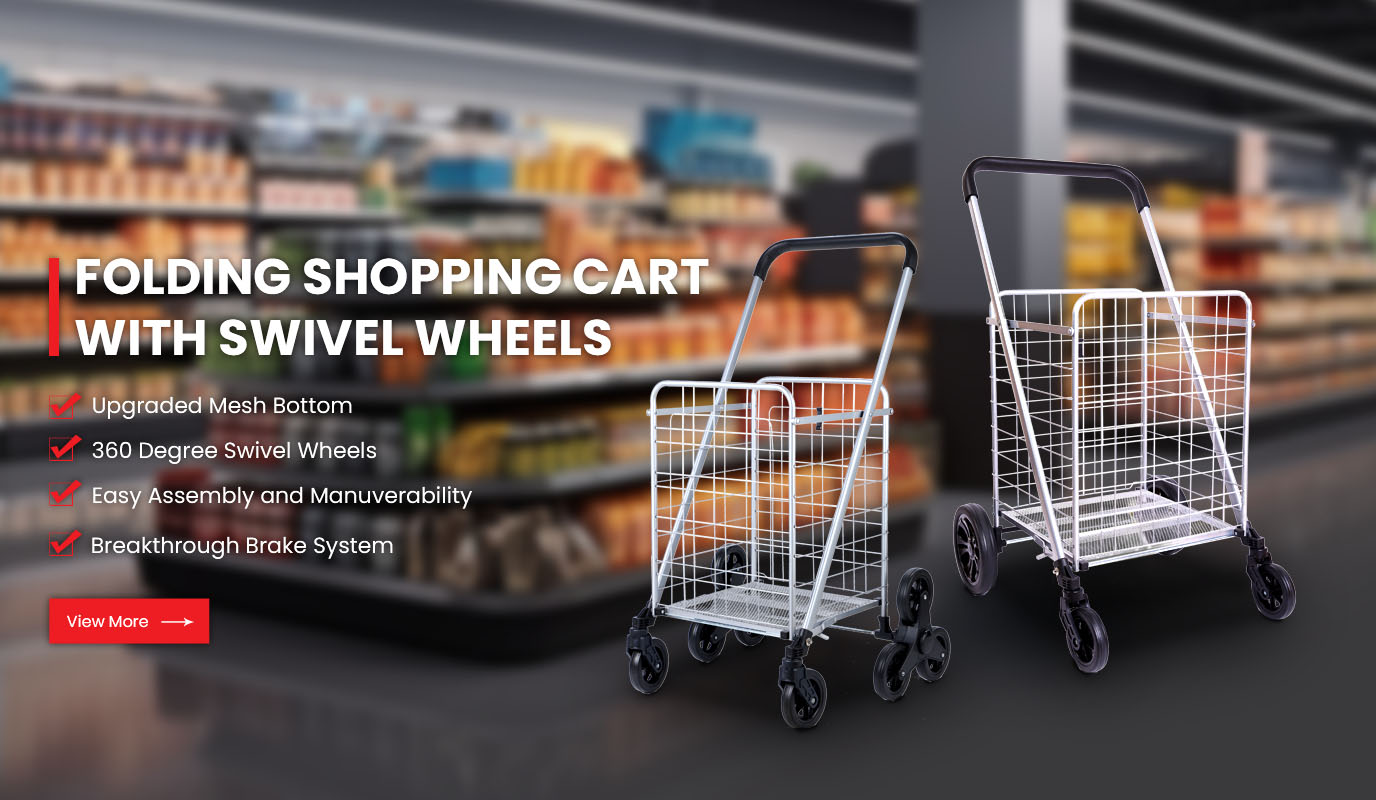The Road To Eu Circular Economy Standards for Polypropylene Shopping Baskets under Tightening European Environmental Regulations
In recent years, European environmental regulations have continued to upgrade, especially the promotion of the EU's Circular Economy Action Plan (CEAP), which has put forward higher requirements for the sustainability of plastic products. As one of the core tools of supermarkets and retail industries, polypropylene (PP) Shopping Baskets - especially Shopping Carts with wheels that are widely used in daily scenes - are facing multiple challenges of material innovation, production process optimization and recycling system reconstruction. How to maintain product competitiveness while meeting strict regulations? This article analyzes from three dimensions: material innovation, design optimization and supply chain management.
①. Core requirements of EU environmental regulations and circular economy standards
Recyclability: By 2030, all plastic packaging must be 100% recyclable or reusable.
Proportion of recycled materials: The proportion of recycled materials in plastic products shall not be less than 30% (some categories require more than 50%).
Carbon footprint limit: Unit carbon emissions in the production process must decrease year by year, and decrease by 20% by 2025.
Taking the common shopping cart with wheels as an example, its PP body, metal axle and rubber accessories need to achieve "full life cycle traceability", and the material separation and recycling rate after scrapping must reach more than 90%. This puts direct pressure on traditional PP shopping basket manufacturers: if they fail to meet the standards, their products will face removal from the shelves or high carbon tax penalties.
②. The current situation and pain points of PP shopping baskets
Market demand and application scenarios
The shopping cart with wheels is a standard tool for European supermarkets. Its core advantages are:
Large capacity design: It can carry 40-60 kg of goods and is suitable for family bulk purchases.
Mobility: The four-wheel steering system adapts to narrow supermarket aisles and outdoor roads.
Durability: PP material is impact-resistant and corrosion-resistant, and its service life can reach 5-8 years.
Traditional PP shopping carts have significant defects:
Low recycling rate: Currently, the recycling rate of PP plastics in Europe is only 32%, and a large number of abandoned shopping carts enter the landfill or incineration process.
Material uniformity: The composite structure of the body and metal/rubber parts makes disassembly difficult and the recycling cost is high.
Carbon emission problem: The production of virgin PP relies on petrochemical raw materials, and the carbon footprint of a single shopping cart is about 18kg CO₂.
③. Solution: Material innovation and design optimization
1. Material innovation: from virgin PP to recycled composite plastics
Chemically recycled PP (rPP): Through depolymerization technology, waste PP is reduced to monomers, and the performance of recycled materials is close to that of virgin materials, and the carbon footprint is reduced by 50%.
Bio-based PP: Using sugarcane bagasse or corn starch as raw materials, it reduces dependence on fossil fuels and meets the EU's "carbon neutral plastic" certification.
Degradable additives: Adding photo/hydrolysis catalysts to PP allows abandoned shopping carts to decompose naturally under specific conditions to avoid microplastic pollution.
Case reference: A German supermarket piloted a shopping cart with 30% recycled PP + bio-based fillers, reducing carbon emissions by 12kg per car, and passed the TÜV recyclable certification.
2. Design optimization: modular and easy-to-disassemble structure
Modular design: The body, wheel set, and handle are produced separately, and standardized interfaces are used to facilitate maintenance and component replacement. For example, the axle is installed by snap-on, without welding, and the metal and plastic can be quickly separated after scrapping.
Single material trend: Gradually eliminate metal/rubber accessories and use fiber-reinforced PP (FRPP) to manufacture axles to improve overall recyclability.
Lightweight transformation: Reduce material consumption through structural simulation, and reduce the thickness of the body from 3mm to 2.2mm, while maintaining the load-bearing capacity and reducing raw material consumption.
④. Green supply chain and production management
1. Carbon reduction in production links
Green electricity substitution: The injection molding machine uses photovoltaic power supply, and a single device reduces carbon emissions by 80 tons per year.
Closed-loop water circulation: The cooling water recovery rate is increased to 95%, reducing water resource waste.
Waste recycling system: The scraps are directly returned to the furnace for production after being crushed, and the raw material utilization rate is increased from 78% to 92%.
2. Supply chain traceability
Blockchain traceability: From raw material procurement to finished product delivery, the entire process data is chained to ensure the transparency of recycled material proportion and carbon emission data.
Supplier ESG audit: Conduct environmental compliance assessments on upstream petrochemical companies and additive suppliers, and eliminate high-polluting partners.
⑤. Market access challenges and future trends
1. Certification barriers and cost pressure
The EU's "eco-label" and "plastic tax" policies require companies to submit detailed LCA reports. Small and medium-sized manufacturers need to invest about 200,000 euros to complete certification, and may face a sharp increase in costs in the short term.
2. Future trends: intelligence and sharing
Smart shopping carts: integrated weighing sensors and RFID tags, automatically settle goods and record carbon footprint data.
Shared leasing model: Supermarkets provide reusable PP shopping carts, consumers pay a deposit to rent, and reduce idle resources.



